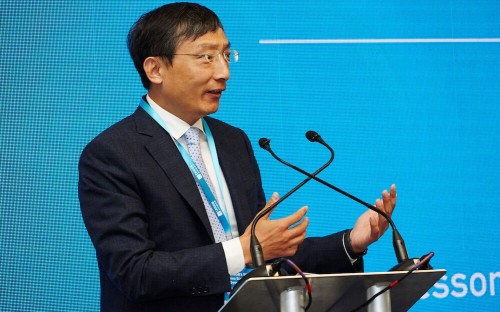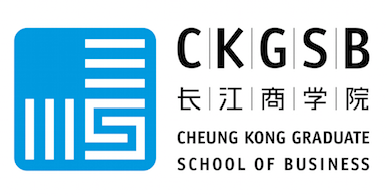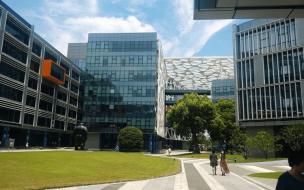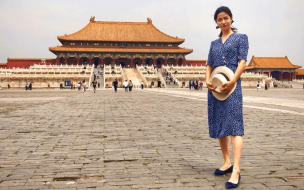But there are very few independent data sources with which to measure China's macro economy. Figures coming out of China’s National Bureau of Statistics are often the sole source.
In June 2011, Li Wei, a charismatic professor of economics at Beijing’s Cheung Kong Graduate School of Business (CKGSB), set out to find a solution for this problem.
Leading a joint initiative by the Case Center and the Center for Economic Research at CKGSB, Li Wei set up the CKGSB Business Conditions Index (BCI), to find out the truth about China’s economy from the people who know it best.
To do so, Li Wei benefited from being part of China’s first independent business school. More than half of CKGSB’s alumni—including Alibaba founder Jack Ma—are at CEO or chairman level, and collectively they lead one‐fifth of China’s most valuable brands.
“Because we’re a business school that attracts lots of leading executives from China, I thought we could pool and survey these students to get some idea of where China is going,” Li Wei explains, speaking at the recent China Economic Symposium in London, hosted and run by CKGSB.
So, in September 2011, Li Wei sent out the first of many surveys to CKGSB’s alumni body; most of them private owners of successful SMEs. In it, respondents were asked to indicate whether certain aspects of their business—like sales, profits, or corporate financing—were expected to increase and improve, remain unchanged, or decrease over the next six months as compared to the same time period the previous year.
In this way, Li Wei’s index gauged the true business sentiment of executives about the macro-economic environment in China and shed light on China’s economic outlook. The results have been published monthly ever since.
What are the prospects for China’s economy today?
Li Wei’s Business Conditions Index takes 50 as its threshold—a score of over 50 means that business conditions in China are expected to improve. In the latest results published in July 2018, the BCI recorded an overall mark of 55.6, meaning there is still modest confidence in China’s economic outlook.
‘But it’s not far off the confidence threshold,’ Li Wei notes in his commentary on the latest report. ‘Particular attention should be paid to financing,’ he continues. ‘Following a sharp drop in June, the index has fallen again, and is now only a short step away from its historic low point.’ July’s financing environment index was 29.5, the third-lowest since the survey began.
Despite the recent growth of China’s economy, it’s becoming harder for business owning alumni from Cheung Kong Graduate School of Business to find funding. Why?
In his commentary, Li Wei says changes to China’s domestic financial environment are to blame. Specifically, the Chinese government’s deleveraging campaign—reducing debt by rapidly selling off assets—and a regulatory clampdown on shadow banking.
Deleveraging, Li Wei says, is key to China’s economic future, but it should take place alongside economic reforms to ensure a strong investment environment.
What China is entering, Li Wei explains, is a “new normal” in terms of its global growth outlook; a diminished expectation for growth. Internal issues, plus the threat of a US-China trade war, presents a real test to an economy which in the past decades has experienced a major boom.
“Currently, China is facing pressure both internally and externally,” says Li Wei in conversation at the China Economic Symposium.
“It’s the perfect storm. The economy needs structural reform; it needs surgery! But, like in a big surgery, you want to gain some weight beforehand so you can survive and come out stronger. This takes time and, at the same time, there comes the external crisis.
“Chinese policy-makers didn’t plan for these crises all coming at the same time. Xi Jinping talks of the strength of the Chinese system, and this is a big test; to see if China can navigate a way through all these challenges so it can wake up stronger than when it went into surgery.”
Before joining Cheung Kong Graduate School of Business, Li Wei was a professor at the University of Virginia’s Darden Graduate School of Business in the US, and had stints at the University of Michigan and Duke University’s Fuqua School of Business.
In fact, out of CKGSB’s 40-plus full-time professors, 23 have previously taught at top-ranked business schools in the US or UK. Together, CKGSB professors have won over 70 global academic awards.
Li Wei’s economics classes are a highlight of the 14-month, full-time MBA at CKGSB, where students learn how to do business in China. This year, CKGSB is also launching new MBA electives covering trending topics like artificial intelligence (AI), fintech, and blockchain.
For Li Wei, who also teaches on the school's EMBA program among others, CKGSB is the place it makes sense to be, teaching and then surveying the future leaders driving China’s economic future.
“Even though the Chinese economy is on a slight downward turn, our alumni business-owners continue to invest at a rapid pace,” he concludes. “We see the clouds over our heads, but our alumni remain the most competitive within their industries.”







